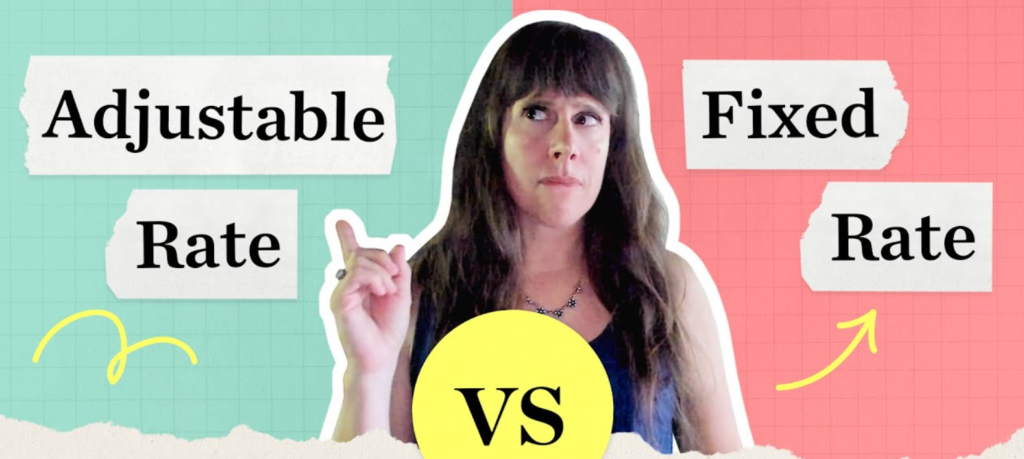When it comes to purchasing a home, one of the most important decisions you will make is choosing the right mortgage loan. In the United States, fixed rate mortgage loans are a popular choice among homeowners. This article aims to provide a comprehensive understanding of fixed rate mortgage loans and their benefits.
Table of Contents
What is a Fixed Rate Mortgage Loan?
A fixed rate mortgage loan is a type of home loan where the interest rate remains the same throughout the entire term of the loan. This means that your monthly mortgage payments will also remain constant, providing stability and predictability.

Advantages of Fixed Rate Mortgage Loans
There are several advantages to choosing a fixed rate mortgage loan:
Stability
One of the key benefits of a fixed rate mortgage loan is the stability it offers. With a fixed interest rate, you can plan your budget more effectively as your monthly payments will remain unchanged. This stability is particularly beneficial in times of economic uncertainty or when interest rates are expected to rise.
Predictability
Fixed rate mortgage loans provide predictability, as you know exactly how much you need to pay each month. This makes it easier to manage your finances and plan for the future. Whether you are a first-time homebuyer or an experienced homeowner, knowing your monthly payment amount can bring peace of mind.
Long-Term Cost Savings
Another advantage of a fixed rate mortgage loan is the potential for long-term cost savings. While the initial interest rate may be slightly higher compared to adjustable rate mortgages, you are protected from future interest rate increases. This can result in significant savings over the life of the loan, especially if interest rates rise.
Refinancing Opportunities
If interest rates decrease significantly after you have obtained a fixed rate mortgage loan, you may have the opportunity to refinance your loan at a lower rate. Refinancing can help you save money on interest payments and potentially shorten the term of your loan.
Considerations
While fixed rate mortgage loans offer many benefits, it is important to consider the following factors:

Higher Initial Costs
Fixed rate mortgage loans often have higher initial costs compared to adjustable rate mortgages. This is because the lender needs to account for the potential interest rate risk over the long term. It is important to evaluate your financial situation and determine if the stability and predictability of a fixed rate mortgage loan outweigh the higher upfront costs.
Interest Rate Environment
When considering a fixed rate mortgage loan, it is essential to assess the current interest rate environment. If interest rates are low, locking in a fixed rate can provide peace of mind. However, if interest rates are high, you may want to explore other options or consider an adjustable rate mortgage.
Conclusion
Fixed rate mortgage loans are a popular choice among homeowners in the USA due to their stability, predictability, and potential long-term cost savings. By understanding the advantages and considerations associated with fixed rate mortgage loans, you can make an informed decision that aligns with your financial goals and circumstances.
Fixed vs Adjustable Rate Mortgage Loans
Below is a comparison table highlighting the differences between fixed-rate and adjustable-rate mortgages:

| Aspect | Fixed-Rate Mortgage | Adjustable-Rate Mortgage (ARM) |
|---|---|---|
| Interest Rate | Fixed throughout the loan term. | Variable; may change periodically based on market conditions. |
| Rate Stability | Offers stability, as monthly payments remain constant. | May experience fluctuations, impacting monthly payments. |
| Initial Interest Rate | Typically higher than the initial rate of an ARM. | Initial rates are often lower, attracting borrowers initially. |
| Payment Predictability | Monthly payments remain consistent, aiding budget planning. | Payments can vary, making budgeting more challenging. |
| Market Influence | Not affected by changes in interest rates after loan initiation. | Directly impacted by market interest rate changes. |
| Term Options | Commonly available in 15, 20, 30-year terms. | May offer various term options, with rate adjustments accordingly. |
| Suitability | Ideal for those seeking long-term rate stability. | Suited for those comfortable with potential rate adjustments and initial lower payments. |
| Refinancing Impact | May require refinancing to benefit from lower rates. | Automatically adjusts with market rates, potentially saving on refinancing costs. |
Frequently Asked Questions
- Q: Are fixed-rate mortgages always higher than adjustable-rate mortgages initially?
- A: Yes, fixed-rate mortgages often come with a higher initial interest rate compared to adjustable-rate mortgages.
- Q: How often do adjustable-rate mortgages experience interest rate changes?
- A: The frequency of rate changes for adjustable-rate mortgages varies but is typically annually, semi-annually, or even monthly.
- Q: Can I switch from an adjustable-rate mortgage to a fixed-rate mortgage?
- A: Yes, borrowers can often refinance their adjustable-rate mortgage into a fixed-rate mortgage to secure a stable interest rate.
- Q: Do fixed-rate mortgages protect against rising interest rates?
- A: Yes, fixed-rate mortgages offer protection by maintaining a constant interest rate throughout the loan term, regardless of market fluctuations.
- Q: What factors influence the adjustment of rates in an adjustable-rate mortgage?
- A: Factors such as market interest rates, economic conditions, and the specific terms of the loan influence rate adjustments in adjustable-rate mortgages.


0 Comments